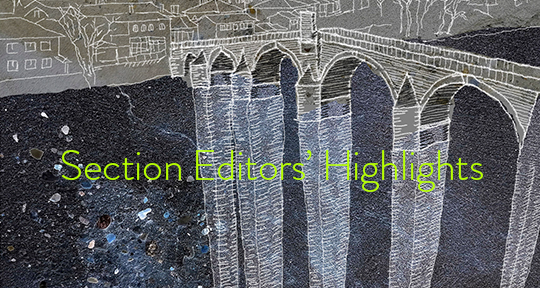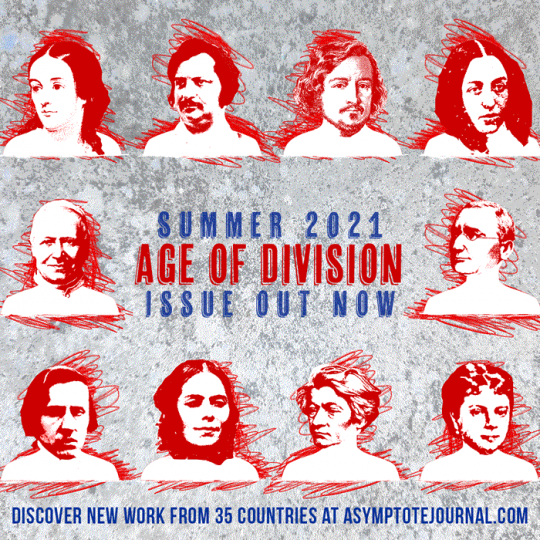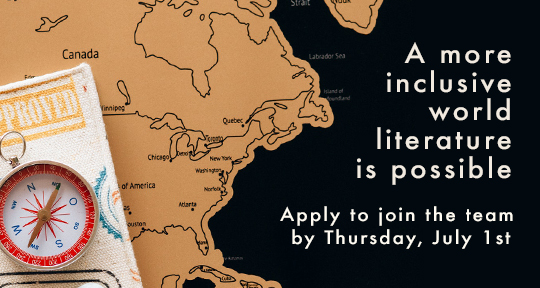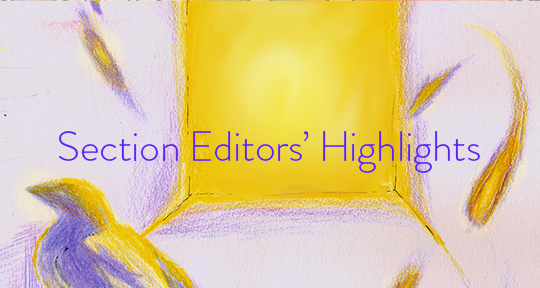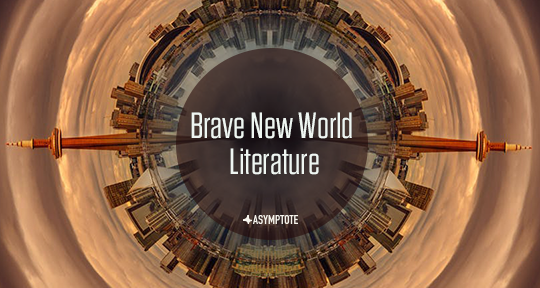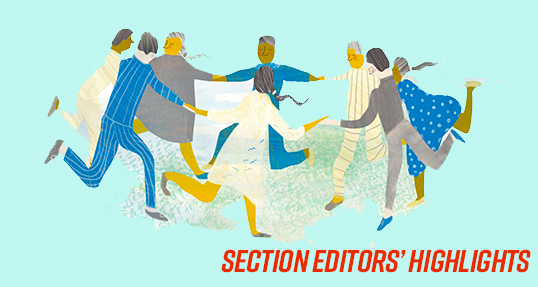The brand-new Summer 2021 edition of Asymptote is barely ten days old and we are still enjoying the diverse offerings from thirty-five countries gathered therein. Last week, blog editors Xiao Yue Shan, Allison Braden, and Shawn Hoo shared their favorites. Today, section editors Lee Yew Leong, Bassam Sidiki, and Caridad Svich distill their highlights for us:
From Lee Yew Leong, Fiction, Poetry, Special Features, and Interview Editor:
Why do so few men read fiction by women? lamented MA Sieghart as recently as seventeen days ago in The Guardian. With female authors taking five out of six slots, the Summer fiction lineup, published just in time for #WomeninTranslation month, offers parochial-minded readers a taste of what they are missing out on. These stories are also deeply centered on the female experience: Gabriel Payares and Maša Kolanović deliver unsettling takes on pregnancy and new motherhood, while the aging protagonists of Kathrin Schmidt’s and Can Xue’s stories go on mushroom-fueled head trips that seem to set the universe right again. A third set explores the corrosive effects of work on identity (in particular, Joanna Chen’s superb translation of mechanical engineer Tehila Hakimi’s Company recalled for me Amelie Nothomb’s masterpiece Fear and Trembling).
When you don’t go by a Judeo-Christian name, the constant bracing against mispronunciation can result in estrangement from your own identity, as Xiao Yue Shan explored in her recent essay on linguistic exile. I can relate. That’s why I found the ending of Abdushukur Muhammet’s “My Name” deeply moving. Translator Munawwar Abdulla not only does an excellent job nailing Muhammet’s melancholic voice, but also provides much needed contextualization in her translator’s note that imbues the poem with a sharp political layer. READ MORE…

